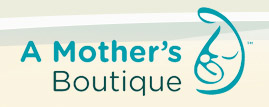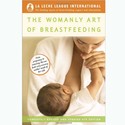There’s a lot of letters being thrown around in reference to lactation. People are offering advice, billing insurance, not billing insurance and asking a lot of questions about issues pertaining to nursing babies. We thought we’d take some time to classify all the different letter options out there to help you pick which lactation expert is the best fit for your situation.
Maybe you find yourself needing reassurance, with a quick question. Maybe you’re dealing with some bloody, oozing sores or baby’s weight loss. Maybe you wonder if this or that or the other thing is normal. Somewhere among these letters, there’s an expert who’s right for you:
IBCLC
An Internationally Board Certified Lactation Consultant is someone who has studied the comprehensive science of lactation and put in the most hours (sometimes 1,000 hours!) observing and working with nursing families. An IBCLC, sometimes just called an “LC,” sits for an examination similar to the boards taken by medical doctors. This is the only internationally, standardized lactation credential available. IBCLC’s work in hospitals, doctor’s offices, and other settings. Your pediatrician or primary care physician might also have an IBCLC credential. Ask if you’re not sure!
Sometimes, LC’s make house calls. In all instances, you should be able to bill your insurance (or seek reimbursement) for consultations with an IBCLC. In fact, the U.S. Surgeon General’s call to action to support breastfeeding specifies that nursing families should utilize these services, saying, “Research shows that rates of exclusive breastfeeding and of any breastfeeding are higher among women who have had babies in hospitals with IBCLCs on staff than in those without these professionals.”
CLC
A Certified Lactation Counselor has taken a 45-hour course in breastfeeding management training and passed a final examination. CLC’s are required to obtain continuing education credits every 3 years to maintain their certification. CLC is often the first step on the road to an IBCLC, and many CLC’s are able to bill insurance for their consultation services. This certification is unique to the United States and a CLC is perfectly qualified to help with commonly encountered situations, including assessing latch, suggesting corrective interventions, counseling mothers, understanding and applying knowledge of milk production in special circumstances (such as premies, Down Syndrome, or newborns affected by medications).
According to the Health Children’s Center for Breastfeeding, CLC’s can counsel and educate mothers regarding breastfeeding, even if they’re experiencing lactation difficulties, and develop a care plan specific to the nursing pair. Often, if a mom is experiencing a real challenge, the CLC will then refer the pair to an IBCLC.
You might find CLC’s working in maternity units, at doctors’ or midwives’ offices, WIC programs, or parenting centers.
CLE
Certified Lactation Educators have taken a 20-hour lactation education course. Their primary role, as the name suggests, is to educate families interested in learning more about breastfeeding. CLE’s can encourage nursing mothers, often support them in the role of a doula or childbirth educator, and offer an experienced point of view to foster confidence in breastfeeding. A CLE can be a source of non-biased, evidence-based information for nursing families. CLE’s do NOT offer medical assessment or advice, but instead refer families to local resources if a problem arises.
For example, a CLE can offer information about the proper care and handling of expressed milk, talk about risks associated with supplementing a baby’s breastmilk with other food sources, or how to maintain supply when a mother is separated from her baby.
The primary difference here is that a CLE offers information and education, not a personal assessment or treatment plan.
LLLI Leaders
La Leche League Leaders have been accredited by La Leche League International to offer mother-to-mother support for breastfeeding. LLLI Leaders have breastfed their own babies for at least nine months, adhere to LLLI statements of belief, and have demonstrated knowledge of breastfeeding through essays and personal work with her supporting Leader as well as the Leader Accreditation Department. Generally, a Leader works for about a year to earn her accreditation.
In a nutshell, an accredited Leader is an expert in basic breastfeeding management and physiology, problem-solving techniques, and the normal course of breastfeeding. Like a CLE, a LLL Leader can offer education about breastfeeding, about maintaining supply while separated from baby, about introducing solids. I’ve known many a LLL Leader, for instance, to answer a great many questions about the range of normal infant poop. Leaders do not offer advice or medical assessments.
LLL Leadership is one way people earn enough observation or hands-on hours to qualify for the IBCLC exam, but unlike the previous categories, these leaders work as volunteers.
PC
A Breastfeeding Peer Counselor is someone who offers mother-to-mother support for breastfeeding, advocates for breastfeeding as the normal, optimal way of feeding an infant, and helps to establish or prolong the time spent breastfeeding. Peer counselors are accredited by various agencies (WIC, for instance) and have varying qualifications. Most have completed around 20 hours of training and taken some sort of examination.
I myself am working on becoming an accredited breastfeeding peer counselor through Breastfeeding USA, whose mission is is “to provide evidence-based breastfeeding information and support, and to promote breastfeeding as the biological and cultural norm.” Once accredited, I’ll be qualified to provide information and support to pregnant and nursing moms in one-on-one or group situations. More on this later!
Peer Counselors, like the name suggests, have all breastfed their own babies for at least a year and so can come to nursing mothers with hands-on experience. Peer counselors, like LLL Leaders, have been there in the nursing mom’s sleep-deprived, unmatched shoes and signed up for their role because they want to help. PC’s offer education and support, but do not offer assessments or medical advice.











[…] out there, some of it coming from the physicians we trust to guide us. I visited three different IBCLCs (International Board Certified Lactation Consultant) before my daughter and I were comfortable nursing. I spent countless hours at the birth center […]